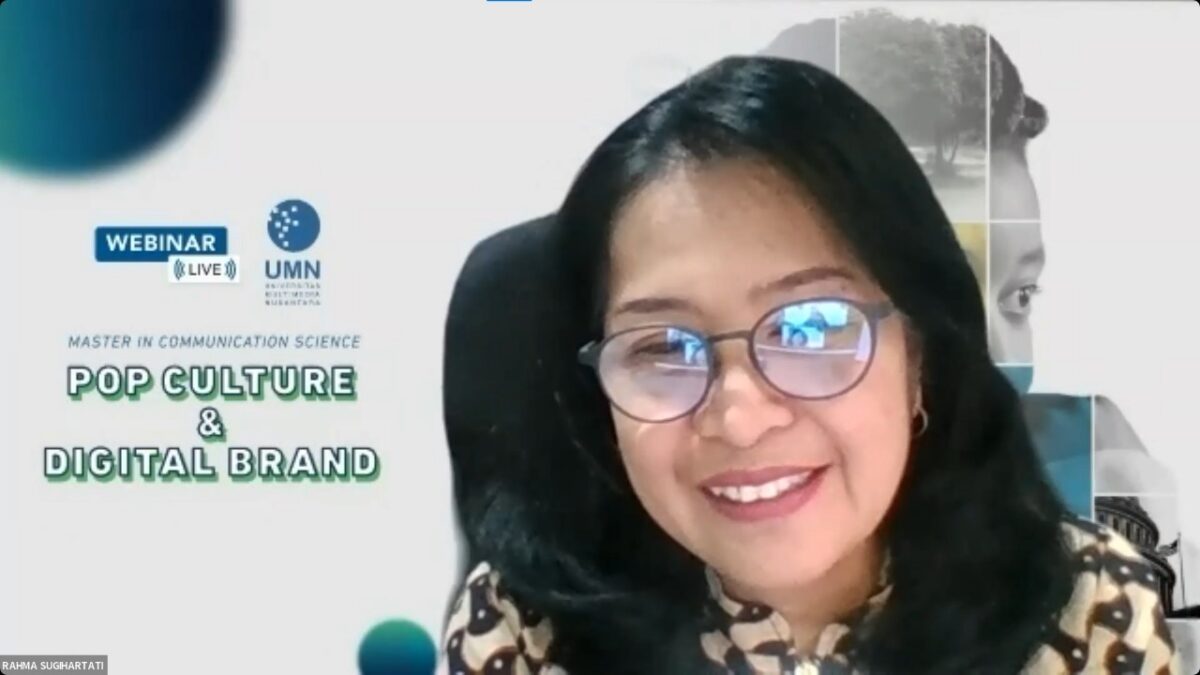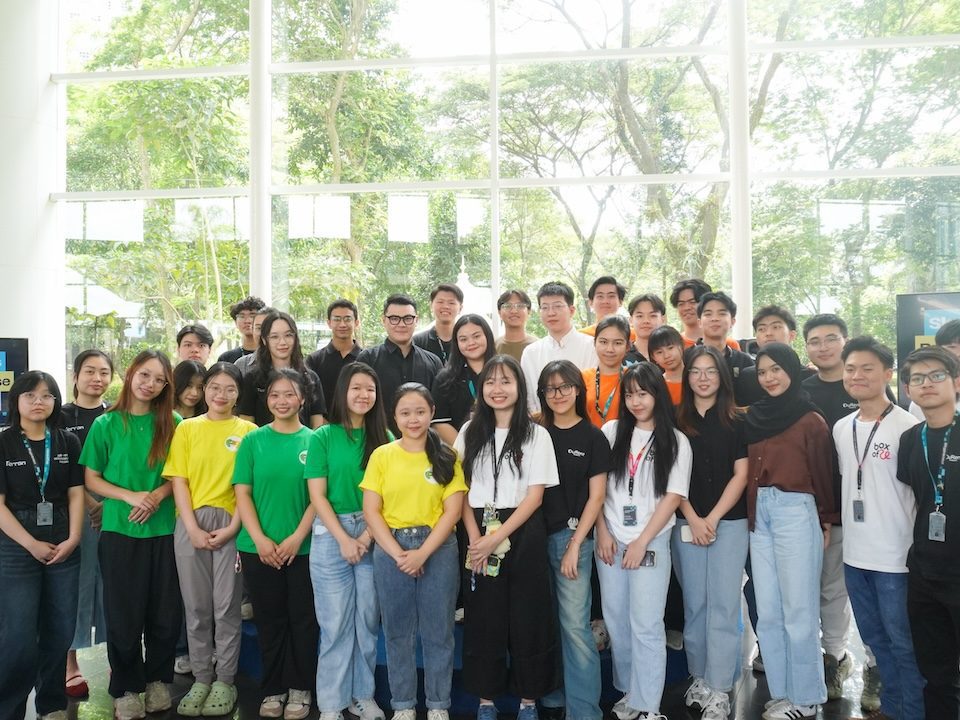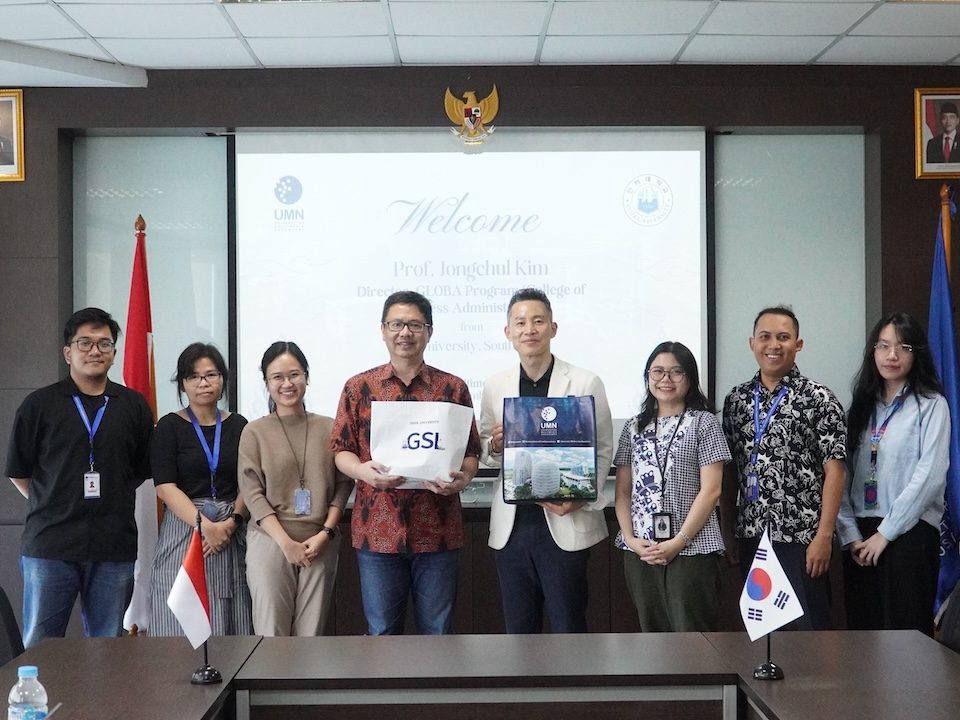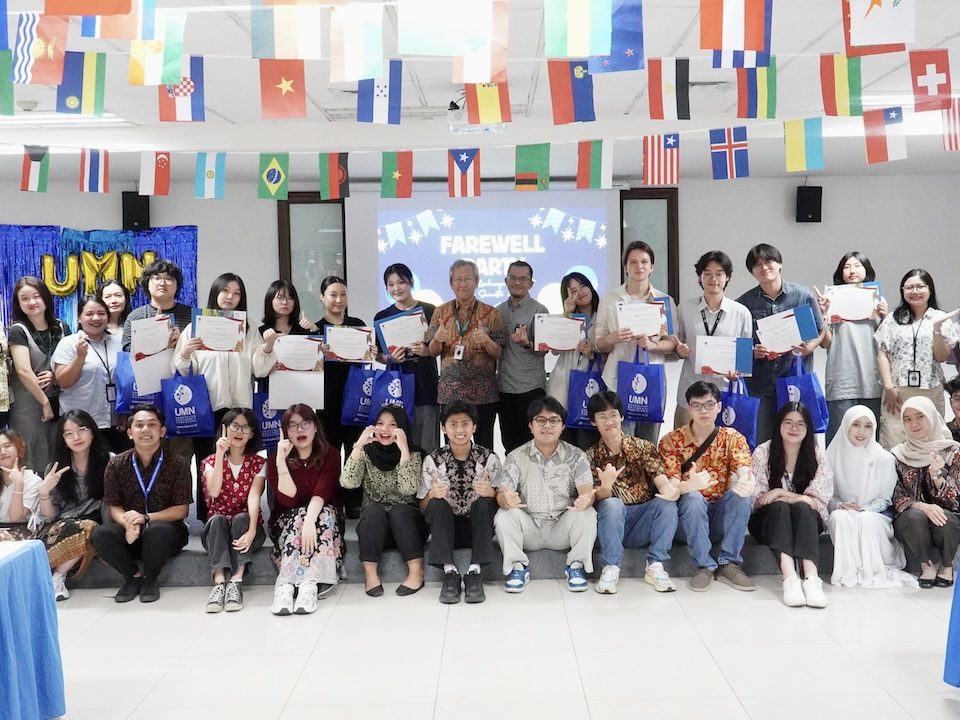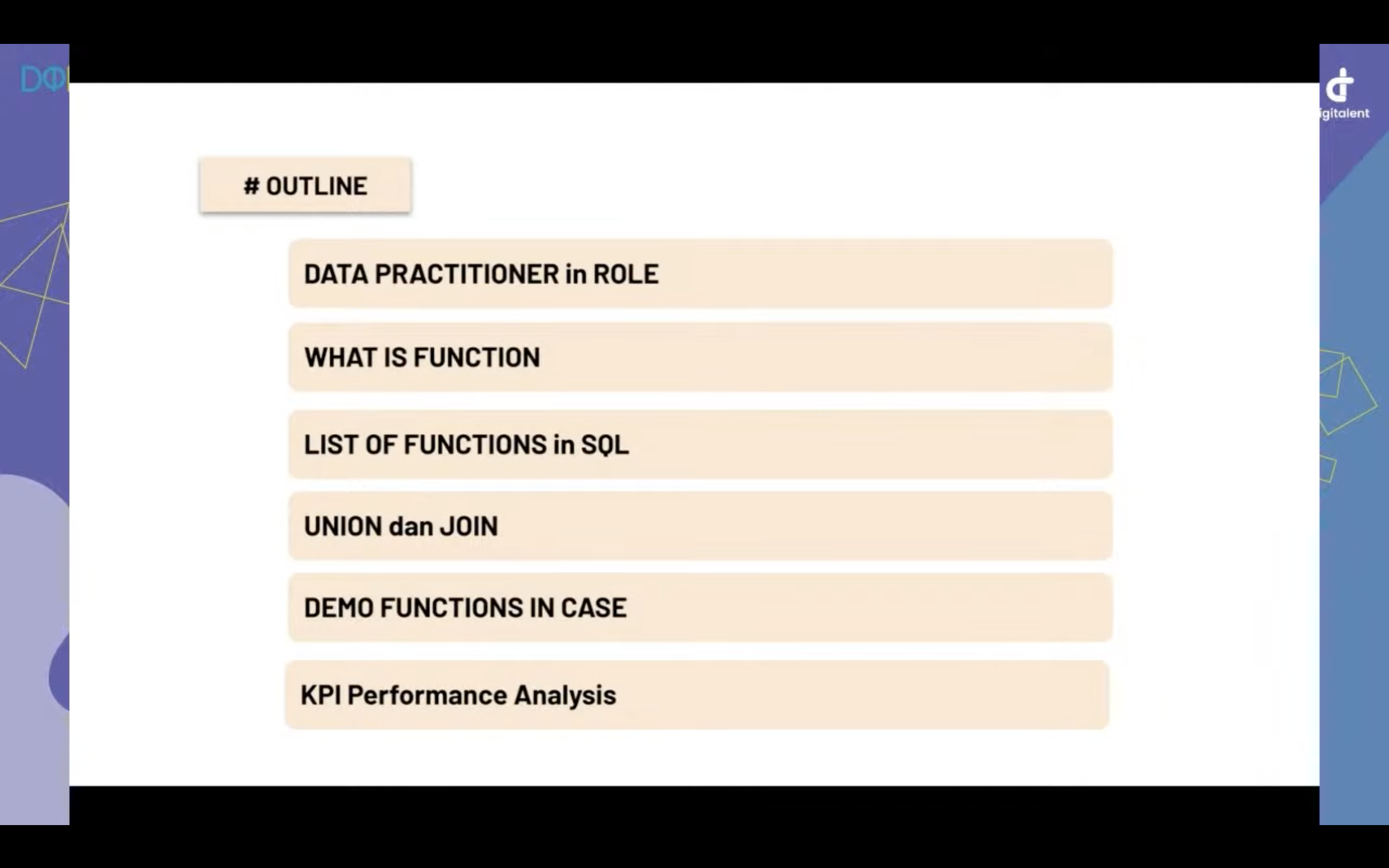
The Importance of Learning SQL Basic Functions as a Foundation for Learning Data Science
April 12, 2022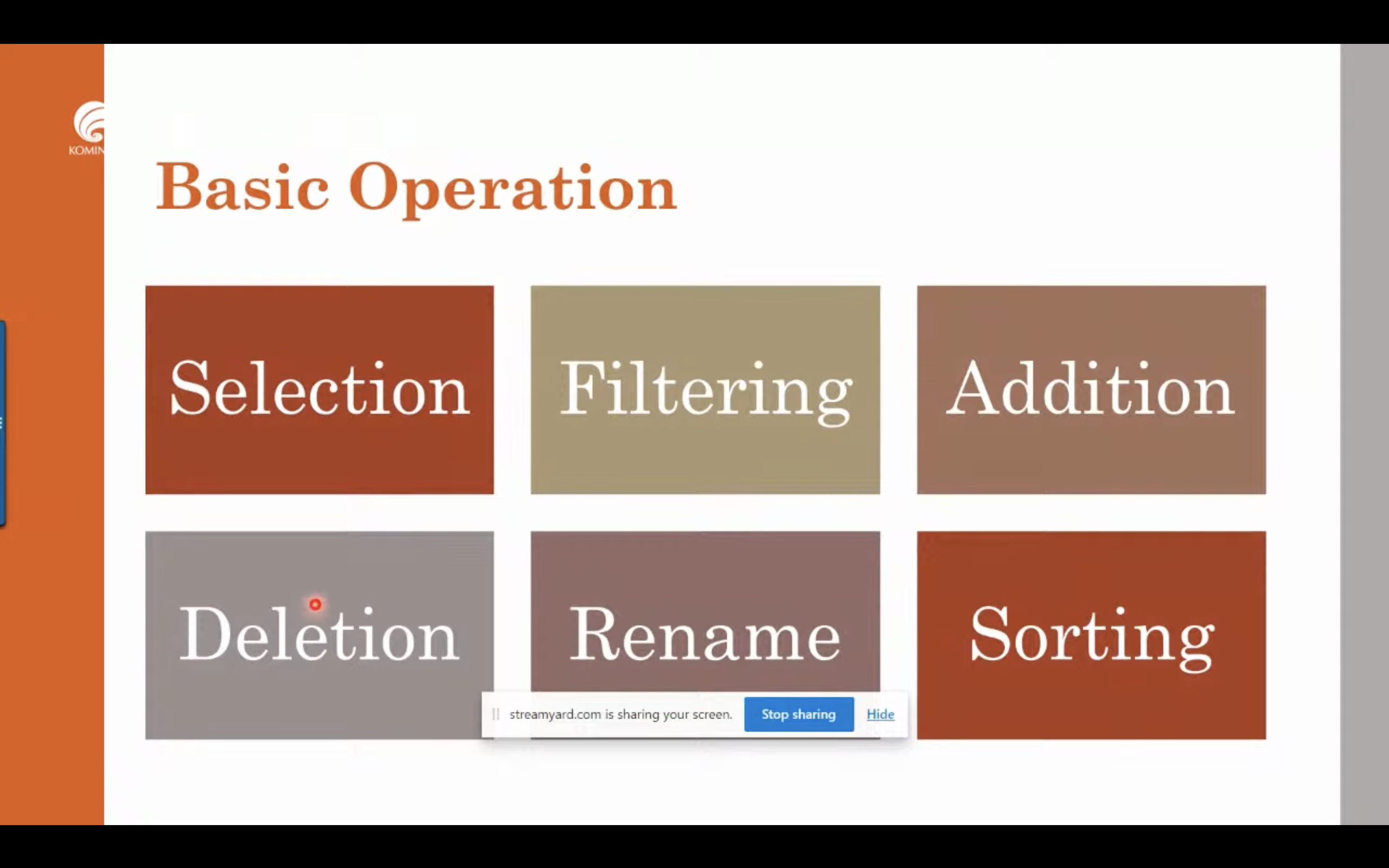
NON-IT students, Let’s Learn Data Quality for Accurate Data!
April 20, 2022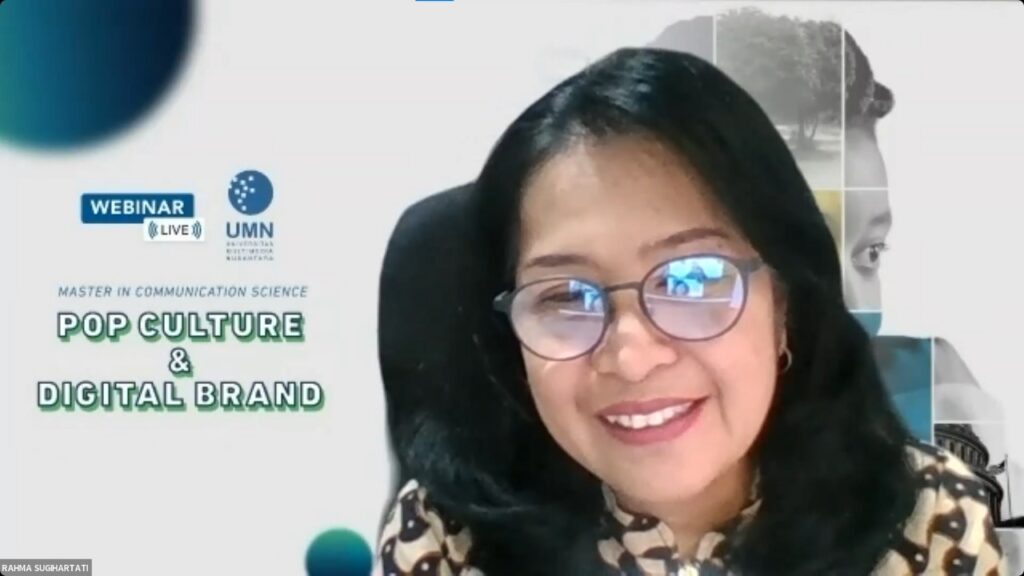 Dr. Rahma Sugihartati, Speaker of the Master of Communications (MoC) webinar April 7, 2022 (Doc. UMN)
Dr. Rahma Sugihartati, Speaker of the Master of Communications (MoC) webinar April 7, 2022 (Doc. UMN)
TANGERANG – Multimedia Nusantara University (UMN) held a Master of Communications (MoC) webinar on Thursday (7/4/2022) through Zoom. This webinar invites Dr. Rahma Sugihartati and Dr. Daniel Susilo as a speaker to discuss materials on Pop Culture and Digital Brands.
The webinar was opened by Patricia Valencia, this event’s MC, by informing the rundown of the webinar, which will begin with the presentation of the material and end with a lottery price giveaway of e-wallets and souvenirs for selected participants.
After Patricia explained the rundown, the event was taken over by moderator Michelle Coritama who then introduced the profiles of the two webinar speakers. The two webinar speakers, namely Mrs. Dr. Rahma Sugihartati, Dra. M.RI. and Dr. Daniel Susilo are both lecturers.
Dr. Rahma is a lecturer in the Information and Library Science Study Program at the Faculty of Social and Political Sciences (FISIP) at Airlangga University, Surabaya. Apart from being a lecturer, Dr. Rahma is also a writer, book editor, and reviewer of international journals such as the humanities and social science review (2020), library philosophy and practice (2021), and the Journal of Consumer Culture (2022).
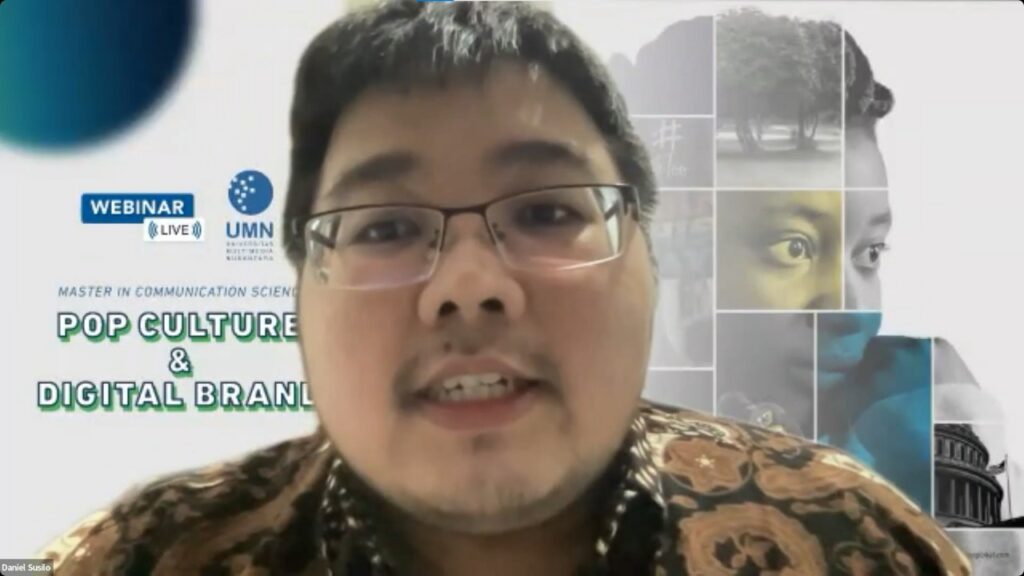 Dr. Daniel Susilo, Speaker of the Master of Communications (MoC) webinar April 7, 2022 (Doc. UMN)
Dr. Daniel Susilo, Speaker of the Master of Communications (MoC) webinar April 7, 2022 (Doc. UMN)
In the meantime, Dr. Daniel is a lecturer in the master’s program in communications at UMN. He also has an outstanding profile. He has experience being a visiting research fellow at Waseda University, associate editor at Plaridel (a Filipino Journal of communication), and editor in chief at ultimacom.
Also read Magister Ilmu Komunikasi Universitas Multimedia Nusantara Resmi Dibuka
After the introduction of the speakers, the material presentation session was started by Dr. Rahma. Shortly before explaining, he said, “thank you for the opportunity to be able to have a discussion with everyone here in this forum.” Then, Dr. Rahma started her presentation by explaining her prepared materials regarding Popular Culture and Brand Culture.
Dr. Rahma explained that popular culture is often contrasted with high culture in the academic circle because of the differences in values and cultural characteristics. Popular culture has the ideology of capitalism and focuses on the profit industry, while high culture focuses on the traditional values of society. For example, popular culture (K-pop, Rap, Anime, and Harry Potter), while examples of high culture are (wayang and Mahabharata).
Dr. Rahma continued that three main principles drive the culture in popular culture: standardization, massification, and commodification.
The novels of Harry Potter, Game Of Thrones, and The Hunger Games are used as examples of representation to explain the three main principles of popular culture. She explained that the three novels were adapted into films, TV series, video games, and merchandise to meet the needs of standardization, massification, and commodification with the ultimate goal of benefiting the brand. In her presentation, she briefly explained that this brand culture is the culture of consumers who carry out attachment, engagement, intimacy, influence, interactivity, and involvement in the brand they love.
The presentation then continued with presenting a material called participatory culture and brand culture. In relation to popular culture and brand products, participatory culture is netizens who participate in disseminating information on popular culture brand products. The embodiment of this participatory culture is called “fandom” (an online community of fans loyal to popular culture products).
Fandom is an essential pillar in a brand culture. “With the fandom, directly or indirectly, netizens or fans of popular culture consumers does the brand culture for free,” Dr. Rahma said.
Dr. Daniel then continues the presentation session. The material presented by Dr. Daniel focuses more on fans studies and fandom. He started by raising several issues about fan studies in cyberspace.
“What is in the virtual world is also considered a reality; and how the reality is in the real world also impacts the reality of the virtual world,” Dr. Daniel said. Later, he added to his statement by saying, “this is what causes the boundaries of reality between people, nature, and artifacts.”
Also read KSPM UMN dan Fakultas Bisnis UMN Gelar Webinar Dorong Literasi Berinvestasi
Another thing Dr. Daniel discussed was how the creative industry should adapt to fandom? He answered this question by revealing that a key opinion leader (influencer) and a fan-based community should be appreciated even more in today’s era. Because, in its application, an influencer can now replace the function of advertising and a fan-based community. They can directly or indirectly help become free digital sales/marketers that are well taken care of.
After the presentation session, the webinar started the question and answer (QnA) session with great enthusiasm and excitement. One of the interesting questions asked was, “in a digital age, how should a brand ideally play a role in the brand community?” Gideon, one of the webinar’s participants, asked.
Dr. Rahma answered by explaining the concept of social engineering, which suggests that corporate brands should always take care of virtual communities through various events to maintain the existence and engagement of brand products. Dr. Rahma also added by giving an example of Britney Spears’ case, who was exploited by her father. Due to her loyal fans who can build digital activism, Britney Spears was helped in her defense in court to win an appeal against her father.
Towards the end of the webinar, a group photo session for documentation took place. It was then continued with a presentation about the UMN Masters of Communications Program by Sorta Yocevina, UMN’s Educational Consultant team. Briefly, Sorta explained the profile of Master of Communications graduates, the benefits of entering, the opening of registration for the third batch, tuition fees, and registration requirements. If you are interested and need more information, you may contact:
Whatsapp : 0877 8083 3593 – Sorta Yocevina (Educational Consultant UMN)
Email : [email protected]
Instagram : @magister.umn
The webinar was closed with a lottery giveaway in the form of e-wallets of 100, 200, and 300 thousand rupiahs and the distribution of three souvenirs from UMN to three lucky participants.
*by Iglo Montana | UMN News Service
Kuliah di Jakarta untuk jurusan program studi Informatika| Sistem Informasi | Teknik Komputer | Teknik Elektro | Teknik Fisika | Akuntansi | Manajemen| Komunikasi Strategis | Jurnalistik | Desain Komunikasi Visual | Film dan Animasi | Arsitektur | D3 Perhotelan | International Program, di Universitas Multimedia Nusantara. www.umn.ac.id

